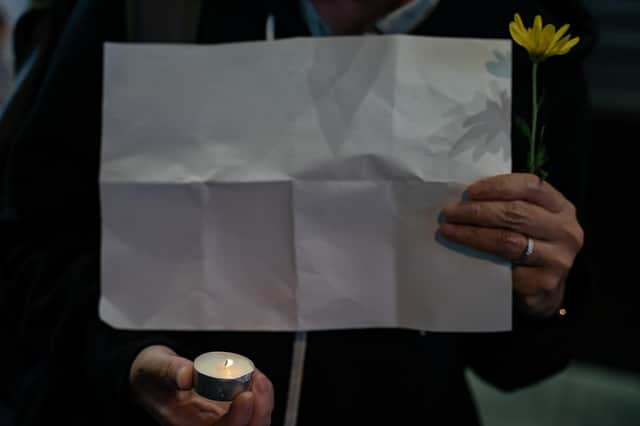China protests: Blank piece of paper can make an eloquent plea for a basic human right: free speech – Scotsman comment


The silencing of dissent, social media censorship and the ‘Great Firewall of China’ are all designed to prevent ideas that the Chinese Communist Party (CCP) deems to be dangerous from gaining a foothold. However, protesters have come up with a new way to express their discontent – over the country's Covid restrictions and a lack of free speech. Holding up a blank sheet of paper may say nothing, but it speaks volumes: people are unhappy and want to say something, but fear the consequences if they do.
Some were bolder, with a crowd in Shanghai on Saturday chanting “Xi Jinping! Step down! CCP! Step down!”, while in Hong Kong, students shouted “oppose dictatorship, don’t be slaves”.
Advertisement
Hide AdAdvertisement
Hide AdIn response, China’s censors were hard at work. They reportedly removed social media posts referring to pieces of paper in an attempt to stop people telling others they were staying silent about something. Of course, everyone would know what was not being said: the Chinese government has mishandled the pandemic, forcing it to impose Draconian restrictions long after other countries have stopped. State television has even been editing coverage of World Cup games to avoid viewers seeing the unmasked crowds.
The unrest in China comes as people in Iran are risking their lives to protest against that country’s dictatorial regime. Whether China’s authorities will launch their own deadly crackdown is unclear, but the 1989 Tiananmen Square massacre of pro-democracy campaigners – in which at least several hundred people were killed, but possibly more than 10,000 – is a constant reminder of the deadly force that repressive regimes will deploy to stay in power.
After the Arab Spring democracy protests began in 2010, Amnesty International suggested it could be remembered as a “watershed year” for human rights with the spread of information online helping to challenge the abuse of power. “It is also the year when repressive governments faced the real possibility that their days were numbered,” Salil Shetty, Amnesty’s Secretary-General, wrote.
Subsequent events suggest that even if a ‘Global Spring’ is dawning, things may not turn out as democrats would hope. But whatever the future holds, we salute China’s protesters for their silent eloquence, courage and demand for a universal right: free speech.
Comments
Want to join the conversation? Please or to comment on this article.